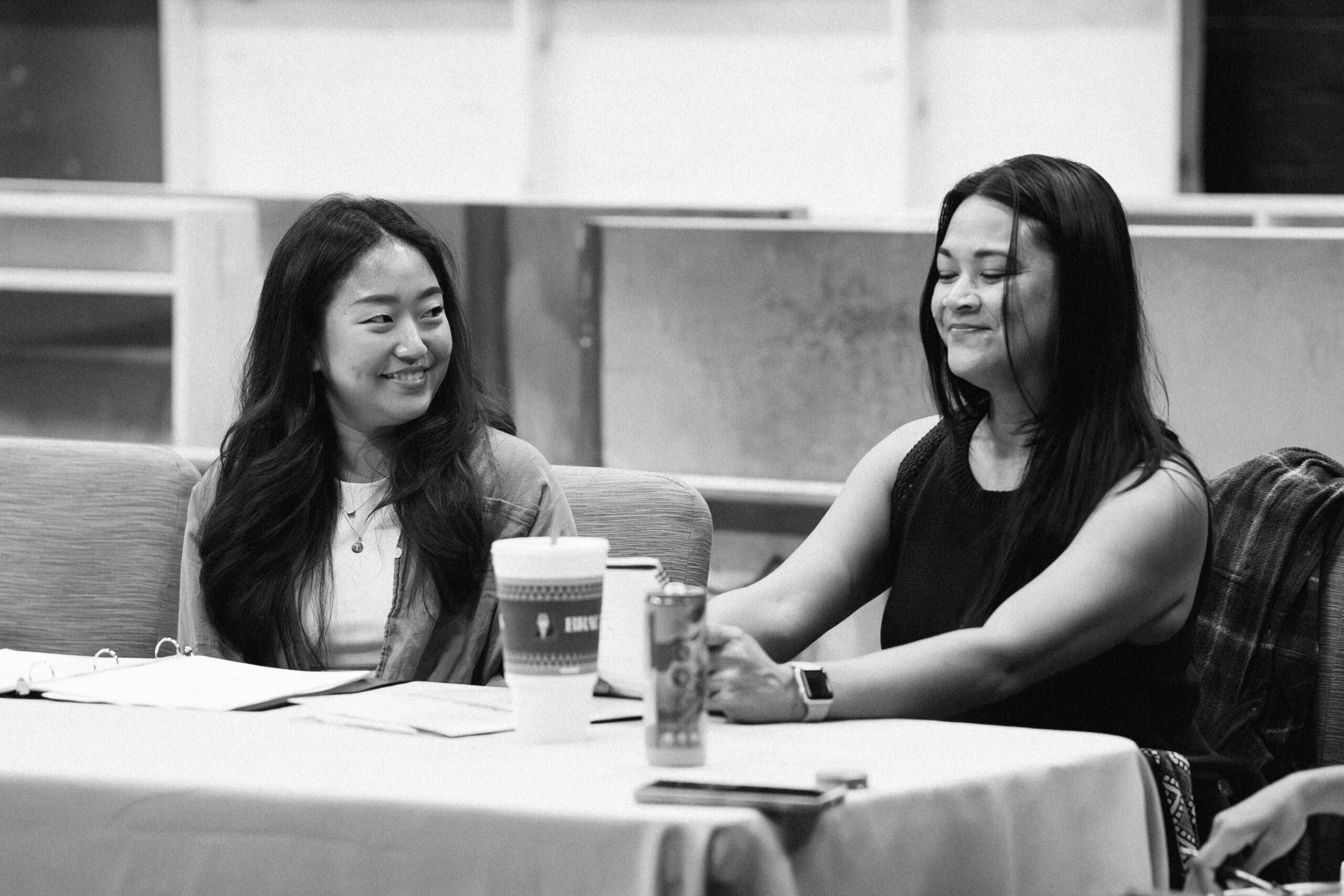Originally posted on kera.news
Ahmad Kamal and Savannah Yasmine Elayyach never appear on stage at the same time, but their portrayal of father and daughter in Amphibian Stage’s production of “Baba” is so convincing that audience members remark on the relationship after the show.
The play, written by Denmo Ibrahim, initially imagined one actor playing both roles in the production that examines one family’s immigration journey and the meaning of home.
“To me, this felt like such a love letter to immigrant parents and their ability to leave everything they know and move across the entire globe,” he said. “Maybe not even for their own safety and security, but for their children’s safety and security … for the hope of being able to build a legacy for them in some capacity. I think that’s just really important and something that I think everyone in the Dallas-Fort Worth community can reflect on and relate to.” – Ahmad Kamal, Mohammed in Baba
The subject matter hits close to home for Elayyach, who is both a first-generation American and carries the responsibility of being the eldest daughter in her family.
“If I had seen the show when I was younger, I think that it would have opened my eyes up to all the sacrifices that my parents had made for me,” she said. “You see them as the parent … They take care of you and you don’t think much of it. You don’t really understand that they had a life before you. As you grow older, you start to realize, wow, it did not click for me that they had to go through all of this mess, through all of the paperwork, through all of the waiting and the discrimination for opportunity, for a chance to live a different life.”
This show is the first time she’s been able to portray an Arab American on stage.
“I’ve been acting for a very long time, and this is the first time I’ve gotten to have the privilege of auditioning for not only an Arab show in general, but one that I relate to deeply,” she said. “It feels very healing for me … Every work I do sparks something in me, but this reignited something different. My love for theater is taking a different turn now because I’ve gotten to dive into a work that has to do with my culture, with my identity.”
Kamal, who mainly works in the Washington, D.C., area, said he has had several opportunities to portray Arab American characters but appreciates the opportunity to use the Arabic language in this production.
Before moving to America at age 12, he saw many performances in Arabic. After moving, he mainly heard Arabic in movies or plays when the character had some sort of villainous quality.
“I think that would have been an exciting thing for me to watch as a child, to be able to hear my language spoken on stage, spoken so naturally and without the excessive need to translate it (because the meaning) is felt by audiences either Western or Arab,” he said. “I think that’s beautiful.”
As a child, Kamal remembers becoming more Americanized and experiencing a clash of cultures within his own family. He is grateful for the opportunity to be able to portray a thoughtful portrait of fatherhood on stage.
“To me, this felt like such a love letter to immigrant parents and their ability to leave everything they know and move across the entire globe,” he said. “Maybe not even for their own safety and security, but for their children’s safety and security … for the hope of being able to build a legacy for them in some capacity. I think that’s just really important and something that I think everyone in the Dallas-Fort Worth community can reflect on and relate to.”
“What this play does beautifully is humanize people,” Dehghani agreed.
After the show, many audience members have shared with the cast how they relate to the story and described their own experience – as either moving to the U.S. or growing up as a first-generation American.
“To me, that’s the best gift that an actor can ask for is when an audience member feels the desire to then share their story as a result,” Kamal said.



